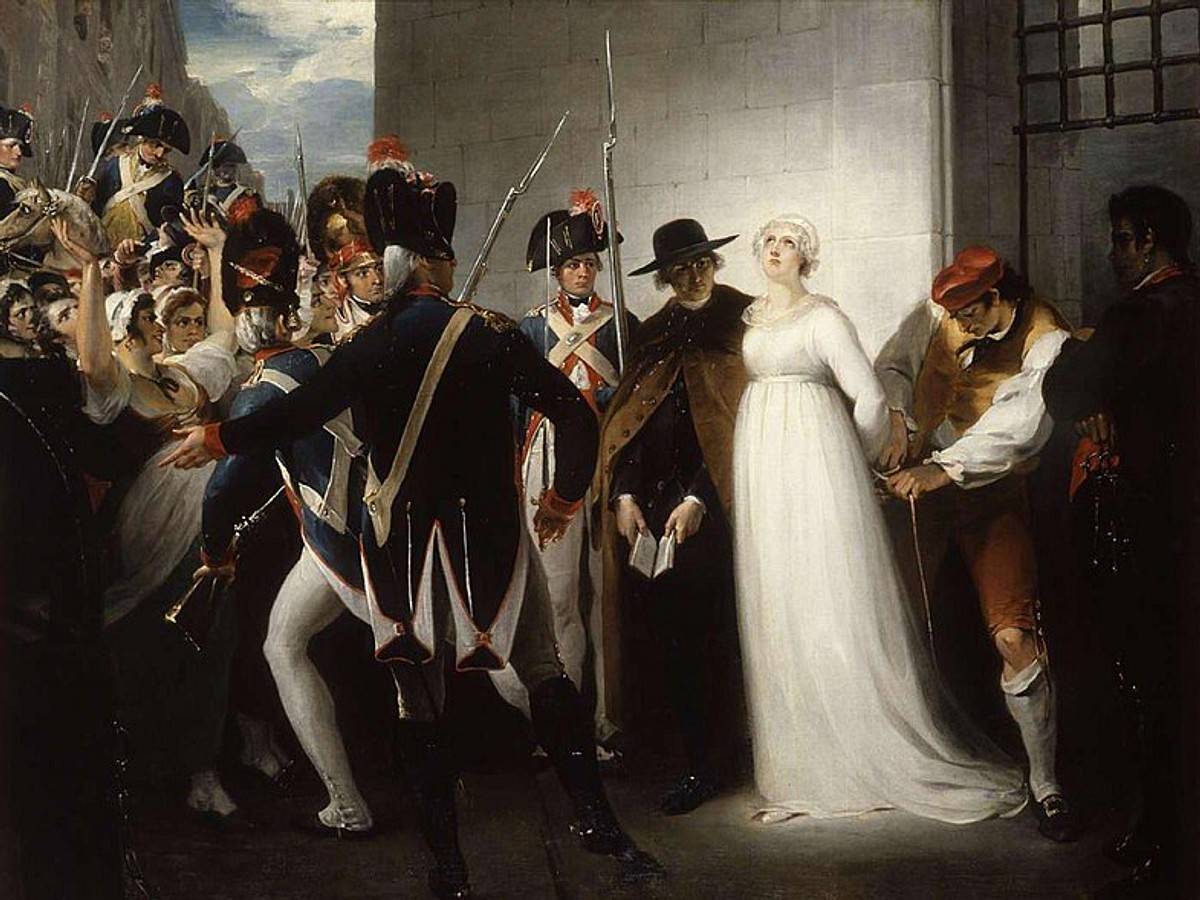Marie Antoinette, born on November 2, 1755, was the daughter of Empress Maria Theresa of Austria. At 14, she married Louis-Auguste, who later became King Louis XVI of France. Their marriage was a political alliance between Austria and France. Though Queen of France, Marie Antoinette had little power in politics and was often criticized for her lavish lifestyle. During the French Revolution, the royal family was imprisoned. In 1793, Louis XVI was executed, and later that year, Marie Antoinette was guillotined. Her death marked the end of the French monarchy. Despite being seen as a symbol of royal excess, her story continues to fascinate people, representing both the downfall of the monarchy and the cruelty of the revolution.
In past centuries, those in power were often seen as divinely appointed or infallible. Dissent could lead to severe punishment, even death, as seen in the harsh treatment of those who defied royal or religious orders. In contrast, today’s society is more pluralistic, with people increasingly challenging the ideas and directions set by those in power. However, the need for leadership remains crucial; people still look for figures who can provide vision, guidance, and stability, even if their faith in these leaders is not as unquestioning as it once was.
Marie Antoinette: A Symbol of Royalty and Fate
Marie Antoinette, born Maria Antonia Josepha Johanna in Vienna on November 2, 1755, was a product of the complex dynastic politics of 18th-century Europe. Her birth date, coinciding with the Catholic feast of All Souls' Day, led some superstitious contemporaries to view it as a bad omen. All Souls' Day is dedicated to commemorating the deceased, and in the eyes of some, this association with death marked a troubled destiny for the young archduchess. However, such symbolic interpretations, though widely believed at the time, were mere superstitions with little grounding in her eventual fate.Marie Antoinette's lineage was formidable,
Picture: World History Encyclopedia
being the daughter of Empress Maria Theresa of Austria and Emperor Franz Stefan of the Holy Roman Empire. Through her great-grandmother, Liselotte van Palatinate, she also traced her ancestry to the famous William of Orange, a key figure in Dutch history. These royal connections were significant, but they did not shield her from the turbulent forces of history.Picture
The Marriage to Louis-Auguste (Louis XVI)
In 1770, at the age of 14, Marie Antoinette was married to Louis-Auguste, the Dauphin of France, who would later become Louis XVI. This marriage was part of a political alliance between the Habsburg Empire and France. The ceremony took place in Vienna, but the couple did not meet until Marie Antoinette’s arrival in France a month later. Their relationship was one of political necessity rather than romantic passion. Marie Antoinette became the Queen of France, but her role as queen consort was more symbolic than politically powerful.Despite her royal status, Marie Antoinette's influence over French politics was limited. Though she became a central figure at Versailles, she did not wield the kind of political power one might expect from a queen of her stature. Her life was shaped more by the rigid expectations of the French court and the political machinations of the time than by her own desires or ambitions.
Did Marie Antoinette Ever Become an Empress?
Marie Antoinette was never crowned Empress of France. Unlike some other monarchies, France did not anoint queens as empresses. After the reign of Maria de' Medici, the wives of French kings were no longer given this high ceremonial distinction. Marie Antoinette was instead crowned Queen of France alongside her husband, Louis XVI, in a lavish ceremony. Yet, her political power remained minimal, and she was often criticized for her perceived extravagance and indifference to the plight of the French people, particularly in the context of widespread poverty and inequality.
The Guillotine: Marie Antoinette’s Fate
Marie Antoinette’s reign as queen was short-lived, as the French Revolution brought down the monarchy. After the royal family was imprisoned during the revolution, an unsuccessful attempt to flee the country in 1791 led to their public disgrace. Louis XVI was executed in January 1793, and Marie Antoinette's fate was sealed shortly thereafter. She was tried by the revolutionary tribunal, convicted of treason, and sentenced to death.On October 16, 1793, she was executed by guillotine in front of a crowd of thousands, marking the end of an era in French history. Her execution became a symbol of the revolution’s radical break from the past and the violent overthrow of the monarchy. The spectacle of her death, especially given her status as a royal, was a profound commentary on the collapse of the old regime.
Legacy and Continuing Fascination
Marie Antoinette remains a complex and polarizing figure. For some, she symbolizes the excess and detachment of the French monarchy, an embodiment of aristocratic privilege in a time of widespread suffering. For others, particularly those sympathetic to her plight, she is seen as a tragic figure, a queen who was out of touch with the realities of her time but who ultimately became a victim of political forces beyond her control.Over time, her legacy has been the subject of numerous reinterpretations, with some historians defending her as a loving mother and a woman who was unfairly vilified by revolutionary propaganda. Others focus on her extravagant lifestyle, which contrasted starkly with the suffering of the French peasants. Rumors about her private life, including unsubstantiated claims about her sexuality, have only added to the myth surrounding her persona.Despite the fall of the monarchy, Marie Antoinette's story continues to captivate people around the world. Her life has been the subject of books, films, and historical studies, making her one of the most enduring symbols of the French Revolution. In this sense, while Marie Antoinette may not have followers in the traditional sense, her legacy endures in popular culture and historical discourse.
Changing Times, Evolving Leadership
As you observe, times are changing, and the way people relate to authority and leadership is shifting. In Marie Antoinette’s era, the monarchy was an unchallenged institution, but her tragic end marked the end of an era in French history. Today, people no longer blindly follow leaders because of birthright or divine decree, yet the need for leadership remains. As history shows, the relationship between the ruled and their rulers is never static, and it is through moments of upheaval, such as the French Revolution, that we gain new perspectives on the nature of power, authority, and human agency.Marie Antoinette’s life and death remind us that leadership is not just about holding power—it’s also about how one is perceived, how one adapts (or fails to adapt) to changing circumstances, and how legacy is shaped by history’s judgment. While she may have been dethroned, her story continues to resonate, offering valuable lessons on the complexities of leadership and human nature.







